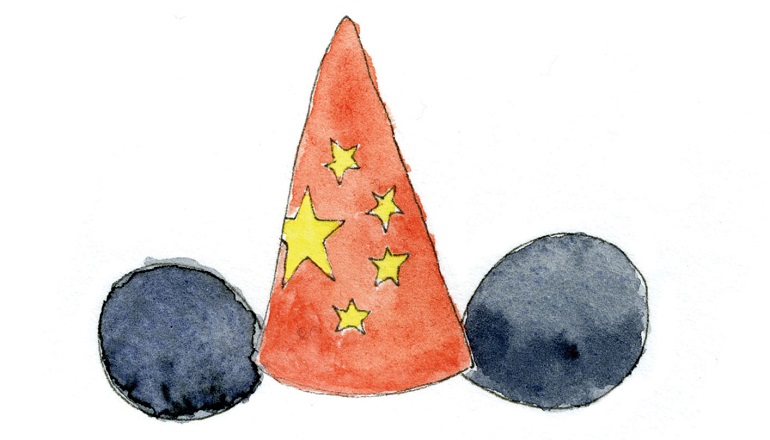I remember leaving Shanghai, with my newly adopted infant strapped to my chest. After an arduous two weeks in China, Eleni and I were heading home to begin our life together in America. Within moments, we would step onto a gleaming United Airlines jumbo jet, and sink into our seats. But during our last minutes in Shanghai, we received a poignant send-off. First, a group of elderly Chinese women, who had been sweeping the airport floors, came up to us and waved good-bye to Eleni. Then, another worker put his hand on my back and said, “You know, you’re giving her a life.”
More than 20 hours later, Eleni and I landed in New York. In her new home, my nine-month-old baby would trade her breakfast of congee and hot milk for Cheerios and strained fruit; exchange the colorful play mats of her orphanage for the grassy hills and playgrounds of Prospect Park; and swap the experienced touch of her kindly caregivers for the efforts of a fumbling, yet earnest, single mom.
By all accounts, Eleni adjusted well to her new life in Brooklyn. Before long, she would sit up in her stroller and call out “Hi! Hi!” to all the passers-by, causing some to dub her the “mayor” of our neighborhood. In the years that have followed, Eleni has made quite a life for herself. At age nine, my daughter is a typical kid, enjoying friendships, soccer games, sleepovers, and all things High School Musical.
On a recent trip to Disney World, my cool, urban girl posed unabashedly for photos with Goofy, Mickey Mouse, and Pluto, and begged for a tall, pointed wizards hat with Mickey ears. As she placed it on her head and paraded around, she couldn’t help but shout, “Mom, I’m living the dream!”
But for all of her happiness, Eleni has not forgotten about her homeland, or the family she left behind. Sometimes at night, she’ll lie awake in bed, thinking about her birth mother. Days later, when I’m making breakfast or walking her to school, she’ll ask, “Mom, do you think my birth mother is alive, or do you think she died?” She’ll also wonder what life would have been like had she stayed in China with her birth family. “It’s not that I really want to live there,” she’ll say in all honesty. “But I wonder what my house and school would have looked like, and what I would have had for dinner.”
Since Eleni’s past is shrouded in mystery, I don’t have definitive answers to give her, so sometimes well play a game of “Let’s Guess.” I’ll say, “I think your birth mother is definitely alive, and that she’s strong and funny and smart, just like you are.” Then she’ll say, “I wonder who else I’m related to. Do you think I’m related to the first emperor of China? He was really mean.”
Our game goes on in this way, with variations. Sometimes we’ll wonder whether Eleni has birth siblings, and how old they might be, or whether her birth mother favors the color “electric green,” as Eleni does.
Or sometimes, when it’s nighttime here in America, and the next day’s beginning in China, we’ll think about the children getting ready for school, and wonder what they’ll be learning that day. In our game of “Let’s Guess,” Eleni and I concoct only happy endings for her birth family and for those left behind in China. And in our heart of hearts—and as we live out our dreams—we want only to believe in them.
Illustration by Audrey Robinson



